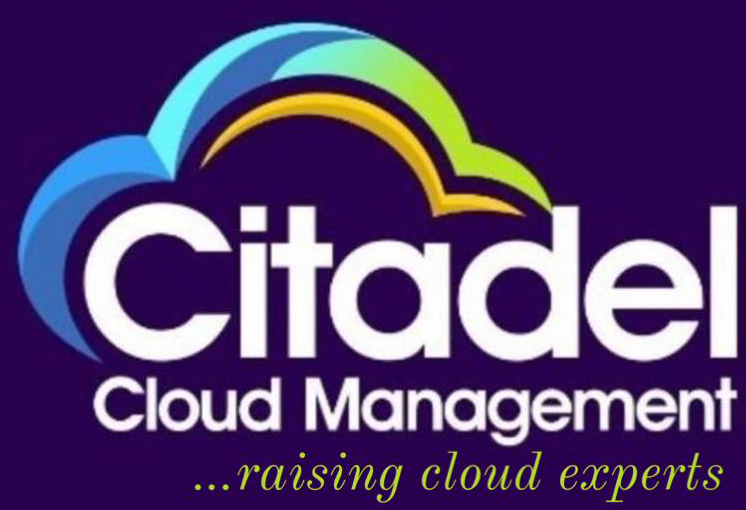
Role of Third-Party Auditors in Cloud Security
citadelcloud
In the digital era, where cloud computing is ubiquitous, ensuring the security of cloud-based systems is more critical than ever. With the proliferation of cloud services, organizations must trust that their data and applications are secure from cyber threats. This is where third-party auditors play a pivotal role. Their involvement provides an additional layer of assurance that cloud providers are adhering to security best practices and compliance requirements. In this article, we will explore the role of third-party auditors in cloud security, discussing their functions, the benefits they offer, and addressing common questions related to their involvement.
Understanding Cloud Security
Cloud security refers to the practices and technologies designed to protect cloud-based systems and data from threats. As organizations increasingly migrate to cloud environments, ensuring robust security measures is paramount. Cloud security encompasses a range of concerns, including data protection, network security, identity and access management, and compliance with regulatory requirements.
What is a Third-Party Auditor?
A third-party auditor is an independent entity hired to evaluate and assess the security and compliance of an organization’s systems and practices. In the context of cloud security, these auditors examine the practices and controls implemented by cloud service providers (CSPs) to ensure they meet industry standards and regulatory requirements.
Key Functions of Third-Party Auditors in Cloud Security
1. Compliance Assessment
One of the primary functions of third-party auditors is to assess whether cloud service providers are complying with relevant regulations and standards. This includes:
- Data Protection Regulations: Ensuring adherence to laws such as GDPR, CCPA, and HIPAA.
- Industry Standards: Evaluating compliance with standards like ISO/IEC 27001, SOC 2, and PCI-DSS.
- Contractual Obligations: Verifying that cloud providers meet the security requirements outlined in service agreements.
2. Security Controls Evaluation
Third-party auditors evaluate the security controls implemented by cloud providers. This involves:
- Access Controls: Assessing measures to protect against unauthorized access.
- Encryption Practices: Reviewing encryption protocols for data at rest and in transit.
- Vulnerability Management: Evaluating how vulnerabilities are identified, assessed, and mitigated.
3. Risk Management
Auditors identify and assess risks associated with cloud environments. They provide insights into potential vulnerabilities and recommend strategies to mitigate risks. This includes:
- Threat Modeling: Identifying potential threats and their impact on the organization.
- Incident Response: Evaluating the effectiveness of incident response plans.
4. Reporting and Recommendations
After completing their assessment, third-party auditors provide detailed reports outlining their findings. These reports typically include:
- Audit Findings: A summary of the assessment results.
- Recommendations: Suggested improvements to enhance security and compliance.
- Action Plans: Steps for addressing identified issues and implementing recommendations.
Benefits of Third-Party Audits
1. Objective Assessment
Third-party auditors provide an unbiased evaluation of cloud security practices. Their independence ensures that the assessment is impartial and based on objective criteria.
2. Enhanced Trust and Assurance
By undergoing third-party audits, cloud service providers demonstrate their commitment to security and compliance. This builds trust with clients and stakeholders, reassuring them that their data is protected.
3. Improved Security Posture
Auditors identify weaknesses and recommend improvements, helping organizations enhance their overall security posture. This proactive approach reduces the risk of security incidents and breaches.
4. Compliance with Regulations
Third-party audits help organizations stay compliant with evolving regulations and standards. This reduces the risk of legal and financial penalties associated with non-compliance.
Common Questions About Third-Party Auditors in Cloud Security
1. How often should cloud providers undergo third-party audits?
The frequency of third-party audits depends on various factors, including industry requirements, regulatory obligations, and the complexity of the cloud environment. Generally, annual audits are recommended, but some industries may require more frequent assessments.
2. What are the key standards and frameworks used in cloud security audits?
Common standards and frameworks used in cloud security audits include:
- ISO/IEC 27001: Information security management system.
- SOC 2 (System and Organization Controls): Controls relevant to security, availability, processing integrity, confidentiality, and privacy.
- PCI-DSS (Payment Card Industry Data Security Standard): Security standards for payment card transactions.
- NIST Cybersecurity Framework: A framework for improving cybersecurity risk management.
3. Can third-party auditors access my organization’s data during an audit?
Third-party auditors typically do not access or handle sensitive data directly. Instead, they review security controls, policies, and practices to ensure compliance. Access to data is usually limited to what is necessary for the audit.
4. How can organizations choose a reputable third-party auditor?
When selecting a third-party auditor, consider the following factors:
- Experience and Expertise: Look for auditors with experience in cloud security and relevant industry certifications.
- Reputation: Research the auditor’s reputation and client feedback.
- Accreditations: Ensure the auditor is accredited by recognized organizations and adheres to industry standards.
5. What should organizations do if an audit identifies security issues?
If an audit identifies security issues, organizations should:
- Review Findings: Analyze the audit report and understand the identified issues.
- Develop an Action Plan: Create a plan to address the issues and implement recommended improvements.
- Monitor Progress: Track the progress of remediation efforts and ensure issues are resolved in a timely manner.
Conclusion
Third-party auditors play a crucial role in cloud security by providing independent assessments, enhancing trust, and helping organizations stay compliant with regulations. Their evaluations help cloud service providers strengthen their security controls, manage risks effectively, and maintain a high level of trust with clients. As cloud computing continues to evolve, the role of third-party auditors will remain vital in ensuring the security and integrity of cloud-based systems.
By leveraging the expertise of third-party auditors, organizations can confidently navigate the complexities of cloud security, safeguard their data, and focus on their core business objectives.
Table of Contents
Latest Articles

ADDRESS
Houston, Texas USA
US LINE
+1 (346) 652-4970
NIGERIA LINE
081 2852 0152
MAIL ADDRESS
info@citadelcloudmanagement.com
QUICK LINKS
- © 2025. All Rights Reserved By Citadel Cloud Management
